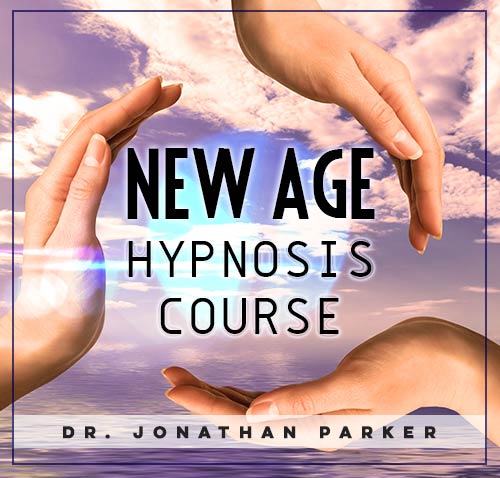Hypnosis for Bedwetting

Before diving in, please note: This post is for informational purposes only. If you’d like to know more about how we approach topics, feel free to check out our friendly Disclaimer Page.
Hey there, amazing readers! 🖐️ Just a quick note: yes, we know there are a lot of ads here. Trust us, we get it—it’s not the prettiest look, but they help us keep this blog alive and kicking. Those pesky little ads cover the costs of all the behind-the-scenes magic, from hosting and tech stuff to creating content we hope you’ll love.
We’re committed to delivering quality posts, and your support (even just sticking around despite the ads) means everything to us. So, bear with us, and thanks for helping us keep the good vibes rolling. Now, on to the fun stuff! 😉
TRANSLATE BUTTON AT THE END OF THE ARTICLE
A Quick Overview
Bedwetting, also known as nocturnal enuresis, is a common issue among children, causing distress for both the child and their caregivers.
While traditional treatments like bedwetting alarms and medication are prevalent, hypnosis therapy has emerged as an alternative option to address this issue.
Hypnosis aims to tap into the subconscious mind to reframe thought patterns and behaviors related to bedwetting.
In this article, we will explore the effectiveness of hypnosis for bedwetting, the benefits it can offer, and how to find a qualified hypnotherapist for your child.
Understanding Bedwetting in Children
Bedwetting is a prevalent issue in children, with around 15% of five-year-olds experiencing it.
It is essential to understand that bedwetting is not a deliberate act or a sign of laziness.
In most cases, children do not have control over their bladder function while asleep, leading to involuntary bedwetting episodes.
Children who experience bedwetting may feel embarrassed, anxious, and frustrated, impacting their self-esteem and overall well-being.
Common Causes of Bedwetting
Several factors can contribute to bedwetting in children, including:
Genetics: Bedwetting tends to run in families, indicating a genetic predisposition.
Developmental Delays: Some children may have delayed bladder development, leading to bedwetting.
Hormonal Imbalance: Insufficient production of antidiuretic hormone (ADH) can result in increased nighttime urine production.
Emotional Stress: Anxiety, changes in routine, or emotional stressors can trigger bedwetting episodes.
Deep Sleep Patterns: Children who are deep sleepers may not wake up to signals from their bladder, leading to bedwetting.
Understanding the underlying cause of bedwetting is crucial in determining the most effective treatment approach.
Traditional Treatment Options
Traditional treatment options for bedwetting typically include:
Bedwetting Alarms: These devices trigger an alarm when they detect moisture, conditioning the child to wake up when they need to urinate.
Medication: Desmopressin is a common medication prescribed to reduce nighttime urine production.
Bladder Training: Encouraging the child to empty their bladder before bedtime and limiting fluids in the evening.
While these treatments can be effective for some children, others may not respond adequately, leading caregivers to explore alternative therapies like hypnosis.
What is Hypnosis Therapy?
Hypnosis therapy is a complementary approach that aims to access the subconscious mind to modify thoughts, behaviors, and beliefs.
During a hypnosis session, a trained hypnotherapist induces a state of deep relaxation in the child, allowing them to be more open to suggestions.
The therapist can then work with the child to reframe negative thought patterns and instill positive affirmations related to bedwetting.
How Hypnosis Works for Bedwetting
Hypnosis for bedwetting works by addressing the subconscious beliefs and behaviors that may be contributing to the issue.
The hypnotherapist helps the child access their subconscious mind to identify any underlying emotional triggers or stressors that could be causing bedwetting.
By reprogramming these beliefs and associations, the child can develop healthier habits and responses related to nighttime bladder control.
Benefits of Hypnosis for Children
Hypnosis therapy offers several benefits for children struggling with bedwetting, including:
Non-invasive: Hypnosis is a safe and non-invasive therapy that does not involve medication or invasive procedures.
Empowering: Children can feel empowered and in control of their bodies through hypnosis therapy.
Customized Approach: Hypnotherapists can tailor the sessions to address the specific needs and concerns of each child.
Stress Reduction: Hypnosis promotes relaxation and stress reduction, which can be beneficial for children experiencing anxiety related to bedwetting.
By tapping into the power of the subconscious mind, hypnosis can help children overcome bedwetting in a gentle and effective manner.
Finding a Qualified Hypnotherapist
When seeking a hypnotherapist for your child, it is essential to do thorough research and ensure you find a qualified professional.
Look for a hypnotherapist who specializes in working with children and has experience treating bedwetting specifically.
Additionally, consider asking for recommendations from trusted sources or seeking out reviews from previous clients to ensure you find a reputable practitioner.
Success Rates of Hypnosis Therapy
The success rates of hypnosis therapy for bedwetting vary depending on the individual child and the underlying causes of their condition.
Some children may experience significant improvements after just a few sessions, while others may require more extensive treatment.
It is essential to set realistic expectations and be patient as your child undergoes hypnosis therapy.
Safety and Risks of Hypnosis
Hypnosis therapy is generally considered safe for children when conducted by a trained and qualified professional.
However, it is essential to be aware of the potential risks, which may include:
False Memories: In some cases, hypnosis can lead to the creation of false memories or distortions of reality.
Temporary Drowsiness: Children may feel drowsy or disoriented after a hypnosis session, so it is crucial to ensure they are well-rested and supervised.
Before starting hypnosis therapy, discuss any concerns or questions with the hypnotherapist to ensure you are comfortable with the process.
What to Expect During a Session
During a hypnosis session for bedwetting, the hypnotherapist will guide the child into a state of deep relaxation, often using visualization techniques and positive affirmations.
The child will remain aware and in control throughout the session, allowing them to explore their thoughts and emotions related to bedwetting.
The hypnotherapist will work with the child to reframe negative beliefs and associations, promoting positive changes in behavior and mindset.
How Many Sessions are Needed?
The number of hypnosis sessions needed for bedwetting can vary depending on the child’s response to treatment and the severity of their condition.
Some children may benefit from just a few sessions, while others may require ongoing therapy to achieve lasting results.
It is essential to work closely with the hypnotherapist to develop a treatment plan that meets your child’s individual needs and goals.
Integrating Hypnosis with Other Treatments
Hypnosis therapy can be used in conjunction with traditional treatment options for bedwetting to enhance the overall effectiveness of the intervention.
By combining hypnosis with bedwetting alarms, medication, or bladder training, children may experience more comprehensive and long-lasting results.
Collaborate with your child’s healthcare provider and hypnotherapist to create a holistic treatment plan that addresses all aspects of your child’s bedwetting issue.
Conclusion
Hypnosis therapy offers a unique and effective approach to addressing bedwetting in children.
By tapping into the subconscious mind and reframing negative beliefs and behaviors, hypnosis can empower children to overcome bedwetting in a gentle and non-invasive manner.
While success rates may vary, hypnosis therapy can be a valuable tool for children struggling with nocturnal enuresis.
By working with a qualified hypnotherapist and integrating hypnosis with other treatment options, caregivers can support their children in achieving dry nights and improved self-esteem.
Consider exploring hypnosis therapy as a holistic approach to managing bedwetting and supporting your child’s well-being.

The Enlightenment Journey is a remarkable collection of writings authored by a distinguished group of experts in the fields of spirituality, new age, and esoteric knowledge.
This anthology features a diverse assembly of well-experienced authors who bring their profound insights and credible perspectives to the forefront.
Each contributor possesses a wealth of knowledge and wisdom, making them authorities in their respective domains.
Together, they offer readers a transformative journey into the realms of spiritual growth, self-discovery, and esoteric enlightenment.
The Enlightenment Journey is a testament to the collective expertise of these luminaries, providing readers with a rich tapestry of ideas and information to illuminate their spiritual path.
Our Diverse Expertise 🌟
While our primary focus is on spirituality and esotericism, we are equally passionate about exploring a wide range of other topics and niches 🌍📚. Our experienced team is dedicated to delivering high-quality, informative content across various subjects ✨.
To ensure we provide the most accurate and valuable insights, we collaborate with trusted experts in their respective domains 🧑🏫👩🏫. This allows us to offer well-rounded perspectives and knowledge to our readers.
Our blog originally focused on spirituality and metaphysics, but we’ve since expanded to cover a wide range of niches. Don’t worry—we continue to publish a lot of articles on spirituality! Frequently visit our blog to explore our diverse content and stay tuned for more insightful reads.







